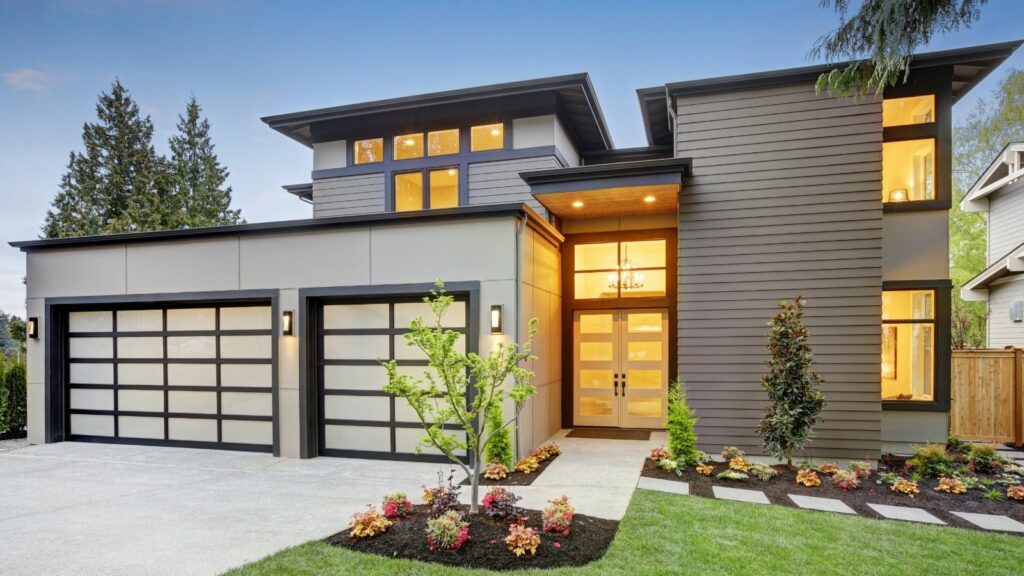Enhancing your home’s value before listing it for sale is a strategic endeavor that can lead to lucrative returns. Thoughtful upgrades and improvements tailored to appeal to prospective buyers are pivotal in this process. The key lies in identifying which enhancements will boost appeal and value most effectively, balancing investment and potential return. By focusing on the right areas, homeowners can transform their property into a compelling offering in the real estate market, poised to attract premium offers and ensure a successful sale.

Comprehensive Home Assessment for Value Enhancement
A meticulous evaluation of a home’s condition, encompassing everything from the foundation to the roof and key appliances, is vital for boosting its market value.
Foundation Integrity: Regular checks can identify and rectify any foundational issues essential for structural stability, safeguarding the home’s longevity.
Roof Condition: A well-maintained roof protects the home from the elements. Inspecting for damage and wear ensures its effectiveness and appeal.
Plumbing System: Functioning plumbing is key. Maintaining pipes and fixtures guarantees efficiency and prevents issues that could deter buyers.
Electrical Wiring: Up-to-date and safe electrical systems are non-negotiable for a home’s functionality and safety, necessitating periodic inspections.
Heating and Cooling Systems: An efficient HVAC system is essential for comfort and energy conservation, prioritizing regular servicing.
Window Integrity: Windows should be energy-efficient and properly sealed, contributing to the home’s overall energy efficiency and aesthetic value.
Pest Control: A pest-free home is vital for its structural integrity and appeal. Routine checks help in early identification and control of infestations.
Structural Soundness: Regular assessments of the building’s structure, including walls and joists, ensure the home remains robust and well-maintained.
Appliance Efficiency: Modern, energy-efficient appliances in the kitchen and laundry areas are appealing and practical, reflecting the home’s updated and well-cared-for status.
Attending to these areas enhances a property’s appeal and instills confidence in potential buyers, showcasing the home as a well-maintained and desirable investment in the real estate market.
Small Upgrades, Big Impact
In real estate, minor upgrades can majorly impact a home’s appeal and value. These small enhancements, often quick and cost-effective, can significantly refresh a property’s look and feel.
Cabinet and Drawer Hardware: Replacing old knobs and pulls with modern hardware instantly revitalizes kitchens and bathrooms, offering an updated, stylish look.
Electrical Plate Covers: New switch and outlet covers can subtly modernize a room, replacing dated or discolored ones for a cleaner appearance.
Caulking: Fresh caulking in bathrooms and kitchens improves the aesthetic and shows attention to maintenance, preventing mold and water damage.
Window Screen Repair: Intact and functional window screens contribute to the home’s appearance and utility, ensuring a well-maintained look.
Light Fixture Updates: Upgrading light fixtures can change the ambiance of a space, making it more welcoming and contemporary.
Faucet Replacement: Modern faucets in the kitchen and bathroom can significantly elevate the spaces, signaling a well-maintained and updated home.
Door Handles and Locks: Updating door handles and locks, especially at the entrance, enhances the home’s aesthetic appeal and perceived security.
Bathroom Accessories: Fresh towel bars, toilet paper holders, and showerheads can make a bathroom feel more luxurious and well-appointed.
Wall Paint Touch-Ups: A fresh coat of paint or touch-ups, where needed, can rejuvenate a room, making the space feel cleaner and brighter.
Flooring Fixes: Repairing or replacing damaged floorboards and tiles can greatly improve a room’s look, showing care and attention to detail.
These seemingly minor upgrades can collectively create a lasting impression on potential buyers, enhancing the property’s attractiveness and perceived value in a competitive market. By focusing on these details, homeowners can effectively increase their home’s appeal and market readiness.
Mastering the Art of Home Staging
Effective home staging is pivotal in showcasing a property’s potential, creating an inviting atmosphere that appeals to buyers. This strategic presentation highlights the home’s strengths and allows potential buyers to envision themselves living in the space.
Decluttering: Removing personal items and excess furniture opens up the space, making rooms appear larger and more welcoming.
Neutral Decor: Implementing a neutral color palette for walls and decorations appeals to a broader range of buyers, allowing them to project their own ideas onto the space.
Strategic Furniture Placement: Arranging furniture to maximize space and flow can transform the look and feel of a room, emphasizing its functionality and size.
Enhanced Lighting: Good lighting is crucial. Utilizing natural light and adding artificial light sources where needed creates a warm and inviting ambiance.
Accentuating Key Features: Highlighting the home’s best features, be it a fireplace, a large window, or high ceilings, draws attention to the unique aspects of the property.
Appealing Scents: Subtle, pleasant scents can create a welcoming environment, avoiding overpowering fragrances.
Curb Appeal: First impressions matter. Ensuring the home’s tidy and attractive exterior sets a positive tone for viewings.
Minor Repairs: Addressing small issues, such as fixing loose handles or patching up scuffs, indicates a well-maintained home.
Thoughtful Accessories: Adding tasteful and minimal accessories, like throw pillows or decorative vases, can enhance the aesthetic appeal without cluttering the space.
By employing these staging techniques, homeowners can create a compelling and attractive presentation of their property, significantly enhancing its appeal in the competitive real estate market. This thoughtful approach to staging showcases a home in its best light and fosters an emotional connection with potential buyers, often leading to quicker sales and better offers.
Enhancing Curb Appeal for a Lasting First Impression
Curb appeal is a critical aspect of preparing a home for sale, setting the stage for a positive first impression. This initial allure can significantly influence a buyer’s perception and interest in a property.
Landscape Maintenance: Well-kept lawns and trimmed hedges demonstrate care and attention, enhancing the home’s overall appeal.
Fresh Paint: A fresh coat of paint, especially on the front door and trim, can dramatically improve a home’s facade, making it more inviting.
Driveway and Walkway Care: Repairing cracks and removing weeds from driveways and walkways improves accessibility and appearance.
Outdoor Lighting: Adequate lighting ensures safety and accentuates the home’s architecture and landscaping.
Door and Window Care: Clean, well-maintained doors and windows enhance the home’s aesthetic and perceived value.
Decorative Elements: Tasteful decorations like a welcoming doormat or seasonal wreath can add charm and character.
Cleanliness: Ensuring the exterior is free from debris, dirt, and cobwebs reflects a well-cared-for property.
By focusing on these curb appeal elements, homeowners can create an inviting and attractive exterior that captures the interest of potential buyers. This attention to detail can significantly affect how quickly a home sells and at what price, underscoring the importance of a well-presented exterior in the real estate market.
Leveraging Advanced Visual Marketing Tools
In today’s real estate market, professional photography, videography, and cutting-edge marketing tools are crucial in showcasing a property’s best features and attracting potential buyers.
Professional Photography: High-quality, professional photographs capture the beauty and details of a home, highlighting its best features in a way that resonates with buyers.
Videography: Engaging video tours allow potential buyers to experience the flow and feel of the home, providing a more comprehensive view than photos alone.
Drone Footage: Aerial views offered by drone footage showcase the property’s layout, land, and surrounding area, providing a unique and expansive perspective.
3D Dollhouse Views: This technology allows for an interactive exploration of the home, giving buyers a virtual walkthrough experience that helps them visualize the space.
Augmented Reality (AR): AR tools enable potential buyers to visualize changes and furnishing in the space, personalizing their viewing experience and fostering a deeper connection with the property.
Virtual Staging: Digitally staging a home with furniture and decor can enhance its appeal, especially for online listings, making it easier for buyers to imagine living there.
By incorporating these advanced visual and marketing tools, sellers can significantly enhance the appeal of their property, making it stand out in a crowded market. These technologies provide a more immersive and engaging experience for potential buyers and highlight the home’s unique qualities, facilitating a quicker and more effective sale process.
Strategic Pricing for Optimal Value
Setting the right price for a property is a critical step in the real estate selling process, directly impacting its perceived value and appeal in the market. A strategically priced home strikes a balance, attracting a wide range of buyers without undervaluing the property.
Market Analysis: Conducting a thorough market analysis helps in understanding the current real estate trends and pricing the home in line with comparable properties.
Buyer Attraction: A well-priced home draws more interest, leading to increased foot traffic and potentially quicker offers, sometimes even above the asking price.
Avoiding Overpricing: Overpricing can deter potential buyers and prolong the time on the market, often leading to price reductions and a lower final sale price.
Underpricing Risks: While underpricing may attract more buyers, it risks undervaluing the property and not achieving its true market potential.
Psychological Pricing: Setting a price just below a round number (e.g., $299,000 instead of $300,000) can make the price seem significantly lower, appealing to a broader range of buyers.
Flexibility for Negotiations: A well-thought-out pricing strategy allows room for negotiations, ensuring the seller remains in a strong position without alienating potential buyers.
By carefully considering these pricing strategies, sellers can enhance their property’s attractiveness, fostering a competitive environment leading to favorable sale terms and prices. This approach helps realize the property’s true value and achieve a successful and satisfying sale outcome.
Maximizing Value with Appraisals and Home Warranties
Understanding and utilizing listing appraisals and home warranties can significantly enhance a property’s marketability and perceived value.
Listing Appraisals: Unlike lender appraisals, which are focused on protecting the lender’s interests, listing appraisals provide an unbiased valuation of the home for the seller. This independent assessment can serve as a powerful marketing tool, giving potential buyers confidence in the property’s worth and justifying the asking price. A listing appraisal can be a strategic asset in negotiations, offering a solid basis for the asking price and potentially reducing the likelihood of price haggling.
Home Warranties: Offering a home warranty can increase a property’s attractiveness. This warranty provides buyers with added confidence, as it covers repairs or replacements of major systems and appliances in the home for a specific period post-purchase. Home warranties mitigate the risks for buyers regarding potential unseen repair costs, making the property more appealing, especially to first-time or cautious buyers.
Increased Perceived Value: Both listing appraisals and home warranties enhance the home’s perceived value. They demonstrate the seller’s commitment to transparency and quality assurance, potentially speeding up the selling process and achieving favorable sale terms.
Incorporating these elements into the selling strategy helps in accurately pricing the property and creating a sense of security and trust with potential buyers, contributing to a successful and efficient sale.
The Impact of Choosing the Right Real Estate Agent
Selecting the right real estate agent is a crucial decision in the home selling process, greatly influencing the outcome of the sale. A skilled agent brings a wealth of experience, market knowledge, and negotiation expertise, all of which are instrumental in navigating the complexities of the real estate market.
Market Knowledge: Experienced agents possess an in-depth understanding of local market trends, enabling them to price and market the property effectively.
Negotiation Skills: Expert negotiation skills are pivotal in securing the best possible terms and prices in a sale, something seasoned agents excel at.
Marketing Expertise: Professional agents have access to various marketing tools and networks, ensuring the property reaches the right audience.
Handling Paperwork: The selling process involves extensive documentation, which agents manage efficiently, reducing the stress and potential for errors.
Problem-Solving: Skilled agents can adeptly handle any issues that arise, from inspection problems to last-minute contingencies in the sale process.
Network and Connections: Agents often have a network of contacts, including home inspectors, photographers, and staging professionals, which can be invaluable in preparing the home for sale.
By partnering with the right real estate agent, sellers can enhance the likelihood of a smooth and successful transaction. The agent’s expertise not only assists in highlighting the home’s best features and navigating any challenges but ultimately contributes to a favorable and efficient sale experience.



